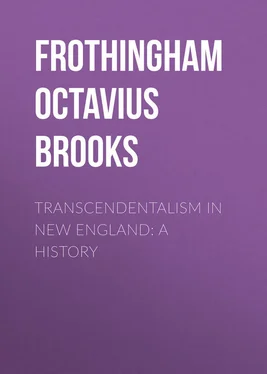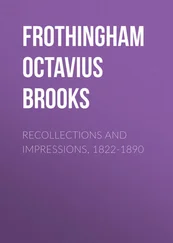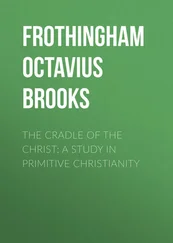Octavius Frothingham - Transcendentalism in New England - A History
Здесь есть возможность читать онлайн «Octavius Frothingham - Transcendentalism in New England - A History» — ознакомительный отрывок электронной книги совершенно бесплатно, а после прочтения отрывка купить полную версию. В некоторых случаях можно слушать аудио, скачать через торрент в формате fb2 и присутствует краткое содержание. Жанр: foreign_antique, foreign_prose, на английском языке. Описание произведения, (предисловие) а так же отзывы посетителей доступны на портале библиотеки ЛибКат.
- Название:Transcendentalism in New England: A History
- Автор:
- Жанр:
- Год:неизвестен
- ISBN:нет данных
- Рейтинг книги:4 / 5. Голосов: 1
-
Избранное:Добавить в избранное
- Отзывы:
-
Ваша оценка:
- 80
- 1
- 2
- 3
- 4
- 5
Transcendentalism in New England: A History: краткое содержание, описание и аннотация
Предлагаем к чтению аннотацию, описание, краткое содержание или предисловие (зависит от того, что написал сам автор книги «Transcendentalism in New England: A History»). Если вы не нашли необходимую информацию о книге — напишите в комментариях, мы постараемся отыскать её.
Transcendentalism in New England: A History — читать онлайн ознакомительный отрывок
Ниже представлен текст книги, разбитый по страницам. Система сохранения места последней прочитанной страницы, позволяет с удобством читать онлайн бесплатно книгу «Transcendentalism in New England: A History», без необходимости каждый раз заново искать на чём Вы остановились. Поставьте закладку, и сможете в любой момент перейти на страницу, на которой закончили чтение.
Интервал:
Закладка:
"They and they only can acquire the philosophic imagination, the sacred power of self-intuition, who within themselves can interpret and understand the symbol, that the wings of the air-sylph are forming within the skin of the caterpillar; those only, who feel in their own spirits the same instinct which impels the chrysalis of the horned fly to leave room in its involucrum for antennæ yet to come. They know and feel that the potential works in them, even as the actual works in them! In short, all the organs of sense are framed for a corresponding world of sense; and we have it. All the organs of spirit are framed for a correspondent world of spirit; though the latter organs are not developed in all alike. But they exist in all, and their first appearance discloses itself in the moral being. How else could it be that even worldlings, not wholly debased, will contemplate the man of simple and disinterested goodness with contradictory feelings of pity and respect. 'Poor man, he is not made for this world.' Oh, herein they utter a prophecy of universal fulfilment, for man must either rise or sink.
"It is the essential mark of the true philosopher to rest satisfied with no imperfect light, as long as the impossibility of attaining a fuller knowledge has not been demonstrated. That the common consciousness itself will furnish proofs by its own direction that it is connected with master currents below the surface, I shall merely assume as a postulate pro tempore … On the IMMEDIATE which dwells in every man, and on the original intuition or absolute affirmation of it (which is likewise in every man, but does not in every man rise into consciousness), all the certainty of our knowledge depends; and this becomes intelligible to no man by the ministry of mere words from without. The medium by which spirits understand each other is not the surrounding air, but the freedom which they possess in common, as the common ethereal element of their being, the tremulous reciprocations of which propagate themselves even to the inmost of the soul. Where the spirit of a man is not filled with the consciousness of freedom (were it only from its restlessness, as of one struggling in bondage) all spiritual intercourse is interrupted, not only with others, but even with himself. No wonder, then, that he remains incomprehensible to himself as well as to others. No wonder that in the fearful desert of his consciousness he wearies himself out with empty words to which no friendly echo answers, either from his own heart or the heart of a fellow-being; or bewilders himself in the pursuit of notional phantoms, the mere refractions from unseen and distant truths through the distorting medium of his own unenlivened and stagnant understanding! To remain unintelligible to such a mind, exclaims Schelling on a like occasion, is honor and a good name before God and man.
"Philosophy is employed on objects of the inner sense , and cannot, like geometry, appropriate to every construction a corresponding outward intuition… Now the inner sense has its direction determined for the greater part only by an act of freedom. One man's consciousness extends only to the pleasant or unpleasant sensations caused in him by external impressions; another enlarges his inner sense to a consciousness of forms and quantity; a third, in addition to the image, is conscious of the conception or notion of the thing; a fourth attains to a notion of his notions – he reflects on his own reflections; and thus we may say without impropriety, that the one possesses more or less inner sense than the other…
"The postulate of philosophy, and at the same time the test of philosophical capacity, is no other than the heaven-descended Know Thyself. And this at once practically and speculatively. For as philosophy is neither a science of the reason or understanding only, nor merely a science of morals, but the science of Being altogether, its primary ground can be neither merely speculative nor merely practical, but both in one. All knowledge rests upon the coincidence of an object with a subject. For we can know only that which is true; and the truth is universally placed in the coincidence of the thought with the thing, of the representation with the object represented."
Coleridge then puts and argues the two alternatives. 1. Either the Objective is taken as primary, and then we have to account for the supervention of the Subjective which coalesces with it, which natural philosophy supposes. 2. Or the Subjective is taken as primary, and then we have to account for the supervention of the objective, which spiritual philosophy supposes. The Transcendentalist accepts the latter alternative.
"The second position, which not only claims but necessitates the admission of its immediate certainty, equally for the scientific reason of the philosopher as for the common-sense of mankind at large, namely, I AM, cannot properly be entitled a prejudice. It is groundless indeed; but then in the very idea it precludes all ground, and, separated from the immediate consciousness, loses its whole sense and import. It is groundless; but only because it is itself the ground of all other certainty. Now the apparent contradiction, that the first position – namely, that the existence of things without us, which from its nature cannot be immediately certain – should be received as blindly and as independently of all grounds as the existence of our own being, the transcendental philosopher can solve only by the supposition that the former is unconsciously involved in the latter; that it is not only coherent, but identical, and one and the same thing with our own immediate self-consciousness. To demonstrate this identity is the office and object of his philosophy.
"If it be said that this is idealism, let it be remembered that it is only so far idealism, as it is at the same time and on that very account the truest and most binding realism."
To follow the exposition further is unnecessary for the present purpose, which is to state the fundamental principles of the philosophy, not to give the processes of reasoning by which they are illustrated. Had Coleridge been merely a philosopher, his influence on his generation, by this means, would have been insignificant; for his expositions were fragmentary; his thoughts were too swift and tumultuous in their flow to be systematically arranged; his style, forcible and luminous in passages, is interrupted by too frequent episodes, excursions and explanatory parentheses, to be enjoyed by the inexpert. Besides being a philosopher, he was a theologian. His deepest interest was in the problems of theology. His mind was perpetually turning over the questions of trinity, incarnation, Holy Ghost, sin, redemption, salvation. He meditated endless books on these themes, and, in special, one "On the Logos," which was to remove all difficulties and reconcile all contradictions. "On the whole, those dead churches, this dead English church especially, must be brought to life again. Why not? It was not dead; the soul of it, in this parched-up body, was tragically asleep only. Atheistic philosophy was, true, on its side; and Hume and Voltaire could, on their own ground, speak irrefragably for themselves against any church: but lift the church and them into a higher sphere of argument, they died into inanition, the church revivified itself into pristine florid vigor, became once more a living ship of the desert, and invincibly bore you over stock and stone."
The philosophy was accepted as a basis for the theology, and apparently only so far as it supplied the basis. Mrs. Coleridge declares, in a note to Chapter IX. of the "Biographia Literaria," that her husband, soon after the composition of that work, became dissatisfied with the system of Schelling, considered as a fundamental and comprehensive scheme intended to exhibit the relations of God to the world and man. He objected to it, she insists, as essentially pantheistic, radically inconsistent with a belief in God as himself moral and intelligent, as beyond and above the world, as the supreme mind to which the human mind owes homage and fealty – inconsistent with any just view and deep sense of the moral and spiritual being of man. He was mainly concerned with the construction of a "philosophical system, in which Christianity, – based on the triune being of God, and embracing a primal fall and universal redemption, (to use Carlyle's words) Christianity, ideal, spiritual, eternal, but likewise and necessarily historical, realized and manifested in time, – should be shown forth as accordant, or rather as one with ideas of reason, and the demands of the spiritual and of the speculative mind, of the heart, conscience, reason, which should all be satisfied and reconciled in one bond of peace."
Читать дальшеИнтервал:
Закладка:
Похожие книги на «Transcendentalism in New England: A History»
Представляем Вашему вниманию похожие книги на «Transcendentalism in New England: A History» списком для выбора. Мы отобрали схожую по названию и смыслу литературу в надежде предоставить читателям больше вариантов отыскать новые, интересные, ещё непрочитанные произведения.
Обсуждение, отзывы о книге «Transcendentalism in New England: A History» и просто собственные мнения читателей. Оставьте ваши комментарии, напишите, что Вы думаете о произведении, его смысле или главных героях. Укажите что конкретно понравилось, а что нет, и почему Вы так считаете.












